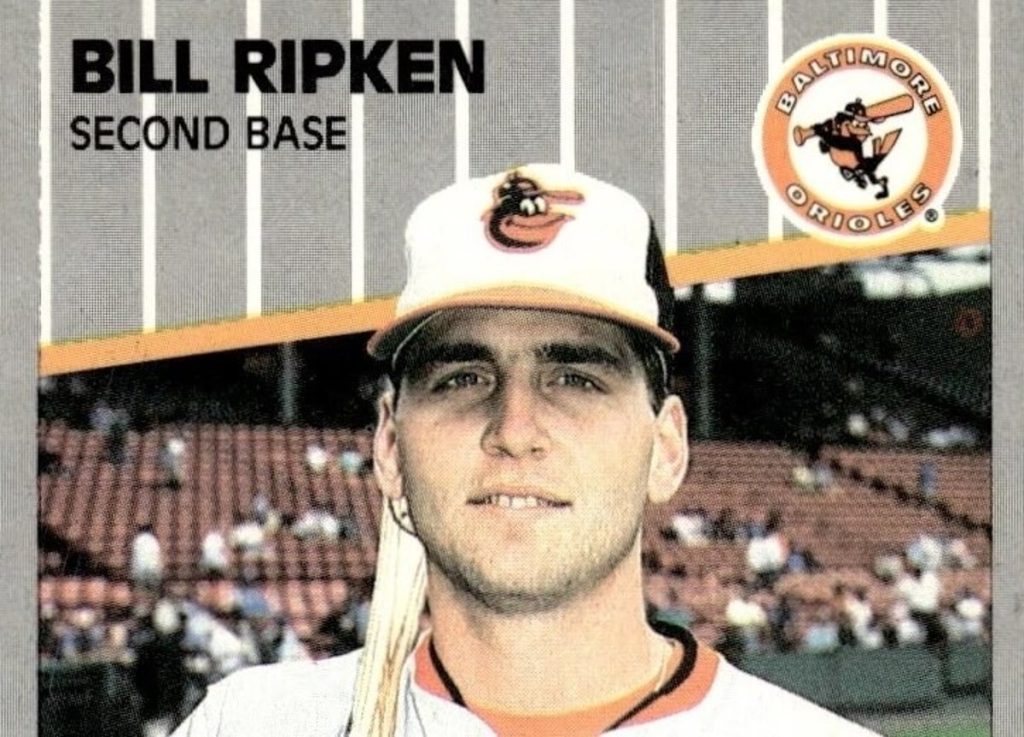Welcome to The Athletic Collectibles Staff’s Sports Card of the Week! Here we highlight a notable, interesting, or just plain fun sports card. This week, we go back to the late ‘80s and spotlight one of the most controversial error cards of the junk wax era.

The 1989 Fleer Baseball set contains 660 cards and includes one of the most controversial cards in hobby history — the Bill Ripken “F— Face” error card. On certain copies of the card, if you look closely at the knob of the bat Ripken is holding in the card’s image, you’ll notice a certain four-letter curse word written in black marker.
When collectors began finding the infamous card in 1989 Fleer packs, it sparked massive demand, with some paying hundreds of dollars to get their hands on it. Following its release, Fleer stated that the error card was accidentally included in packs after the phrase went unnoticed during the production process. Its widespread notoriety and outrage from concerned parents led Fleer to recall the error card and issue multiple censored versions with the profanity covered.
When first asked about the card, Ripken insisted that he didn’t write the phrase on the bat, blaming an unnamed teammate pulling a prank. But 20 years following its release, he ultimately confessed to being the one who scribbled the phrase on the bat knob. Ripken explained that he marked the knob with the phrase as a way to distinguish his batting practice bats from the ones he used in games. He also expressed his skepticism about the error card’s inception and suggested that Fleer might have intentionally released it for publicity.
Other notable cards in the set include rookie cards of Hall of Famers Ken Griffey Jr., Randy Johnson, John Smoltz, and Craig Biggio. Another memorable error card from the set is that Johnson #381 card, which shows him pictured in front of Veterans Stadium’s Marlboro cigarette advertisement — another no-no for a product marketed to kids that underwent multiple attempts to obscure the offending portion of the image.
Why It Matters
Ripken’s ‘89 Fleer card is arguably the king of error cards because of how shocking it was at the time and its lasting impact on the sports card hobby. Not only did it inspire card manufacturers to purposefully produce creative “error” cards, but it also sparked interest in controversial cards from collectors and paved the way for the niche market of error card collecting.
Bill Ripken wasn’t an all-star caliber player or favorite among collectors like his brother Cal, but the unique story behind his ‘89 Fleer card has driven sustained demand and value over the decades since its release. In 2024, Topps even paid tribute to it by producing a short-print rookie card of Orioles infielder Jackson Holliday holding a bat with the phrase “fun face” written on the knob and variations that mimicked the original’s. Topps then put the knob of that bat itself into a 1/1 card in a subsequent set. Collectors have long dreamed of the same being done with the Ripken bat knob (custom imitations have been produced), and if that original bat ever did resurface, it would be worth a substantial sum.

PSA Graded Population and Current Market Value
Although this iconic error card is extremely popular among collectors, it’s not necessarily rare in graded condition. PSA (Professional Sports Authenticator) has graded it more than 21,000 times, and nearly 3,000 examples have received a Gem Mint 10 grade.
The most common grade is PSA 9 (9,127 copies) and currently sells on eBay for around $180 (ungraded examples of the card sell for around $70), while PSA 10s are valued around $900. Since 2020, PSA 10 graded examples have increased in value by over 500 percent as demand for the card has climbed along with the resurgence of the entire sports card market. Last year, an autographed example of the card in a PSA 10 grade sold for $5,600, setting a record high for the card in any of its forms.
Want to see another card of the week? Subscribe to our daily baseball newsletter The Windup for Levi Weaver’s baseball card of the week each Friday. Here’s his latest selection.
The Athletic maintains full editorial independence in all our coverage. When you click or make purchases through our links, we may earn a commission.
(Card images: eBay)


